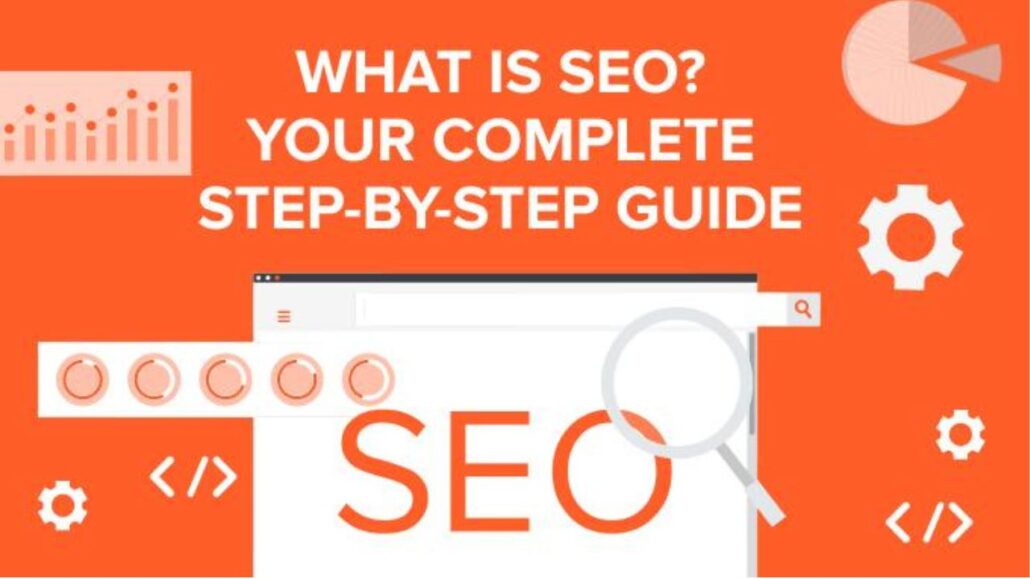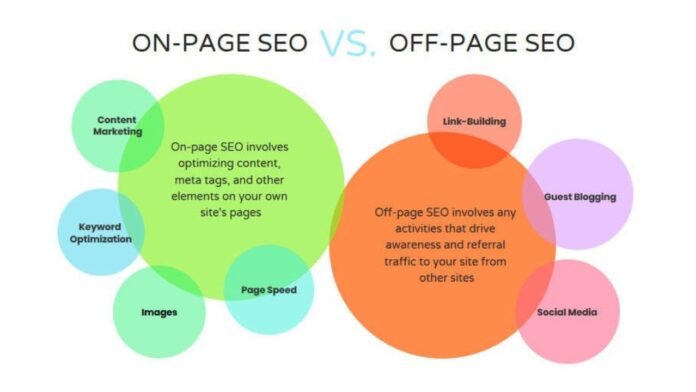User Experience and On-Page SEO explores effective strategies for optimizing website content to enhance user experience and on-page search engine optimization.
Search engines are becoming more sophisticated and prioritizing websites offering an exceptional user experience. In this article, we’ll delve into the best practices for combining user experience and on-page SEO. This combination ensures your website ranks highly and keeps visitors engaged.
Introduction: The Convergence of UX and SEO
The relationship between user experience and SEO has become increasingly intertwined. Additionally, search engines want to give users the best, most relevant internet experiences possible.
Therefore, marketers and website owners must comprehend how these aspects work together.
User Intent: The Foundation of Effective SEO

Before diving into on-page SEO techniques, it’s crucial to comprehend user intent. Conduct thorough keyword research to identify what your target audience is searching for.
Produce material that reflects their interests and requirements.
Mobile Responsiveness: A Must for Modern SEO
With most internet traffic coming from mobile devices, having a mobile-responsive website is imperative. Search engines prioritize mobile-friendly sites, so ensure your design is adaptable to various screen sizes.
Page Loading Speed: The Need for Speed
In the fast-paced digital world, users expect websites to load swiftly. Additionally, slow-loading pages can lead to high bounce rates and poor rankings. Therefore, optimize your website’s performance to keep visitors engaged.
High-Quality Content: The SEO Fuel
Content remains king in the SEO realm. Moreover, craft high-quality, informative, and engaging content that caters to your audience’s needs. Additionally, incorporate relevant keywords naturally to boost your rankings.
Structured Data Markup: Enhancing Search Visibility
Structured data markup, such as schema.org, provides search engines with additional context about your content. Implementing structured data can result in rich snippets in search results, increasing click-through rates.
User-Friendly Navigation: Keep Visitors Clicking
A well-structured navigation menu ensures visitors can easily find what they want. Additionally, a user-friendly interface reduces bounce rates and encourages exploration.
Internal Linking Strategy: Guide Your Audience
Internal links guide users through your website while distributing link authority. Thoughtfully incorporate internal links to keep visitors engaged and improve your site’s SEO.
Optimizing Images and Multimedia: A Visual Delight

Visual content enhances user experience. Additionally, optimize images and multimedia elements for faster loading times and better search engine rankings.
Secure and Accessible Website: Trust Matters
Security and accessibility are paramount. To achieve this, secure your site with HTTPS, and, in addition, ensure it complies with accessibility standards, making it accessible to all users.
Social Signals: The Power of Sharing
Social media plays a role in SEO through social signals. To elaborate further, encourage sharing and engagement on social platforms to boost your website’s visibility.
User Feedback and Engagement: Listen and Adapt
Engage with your audience, gather feedback, and adapt your website based on user preferences. Consequently, this iterative process can lead to a more user-centric site.
SEO and UX Analytics: Data-Driven Decisions
Leverage analytics tools to track SEO and UX metrics. In addition, data-driven decisions allow you to continually refine your website for optimal performance.
Emerging Trends: Voice Search and AI
Stay ahead of the curve by considering emerging trends like voice search and artificial intelligence. Furthermore, these technologies are changing how users interact with websites.
How To Use AI To Enhance Your SEO & Create Better Content
In the ever-evolving digital marketing landscape, leveraging artificial intelligence (AI) has become a game-changer for optimizing search engine optimization (SEO) and crafting superior content.
Furthermore, AI empowers marketers with advanced tools and insights that save time and boost their strategies’ effectiveness. Moreover, AI empowers marketers and content creators with advanced tools and insights that save time and boost their strategies’ effectiveness.
In this guide, we’ll explore how you can harness the power of AI to take your SEO efforts to the next level and create content that resonates with your target audience.
Key Metrics In Measuring Content Effectiveness:
Continuing from our previous discussion, we’ll dive deeper into the practical applications of AI in improving your SEO and content creation processes.
Additionally, learn how AI-driven tools can automate keyword research, content generation, and even predictive analytics to stay ahead of search engine algorithm updates.
To elaborate further on our previous discussion, this second installment will equip you with actionable strategies and best practices to stay competitive in the ever-evolving digital landscape.
How To Use AI To Enhance Your SEO & Create Better Content
Continuing from our previous discussion, we’ll dive deeper into the practical applications of AI in improving your SEO and content creation processes. Additionally, Learn how AI-driven tools can automate keyword research, content generation, and even predictive analytics to stay ahead of search engine algorithm updates.
To elaborate further on our previous discussion, this second installment will equip you with actionable strategies and best practices to stay competitive in the ever-evolving digital landscape.
How To Use AI To Enhance Your SEO & Create Better Content
In this final part of our series on AI and SEO, we’ll explore advanced AI techniques and emerging trends that can further enhance your SEO efforts and content creation.
Discover how, through natural language processing (NLP), chatbots, and AI-driven content personalization, you can take your digital marketing strategies to new heights.
Additionally, stay at the forefront of the AI revolution and ensure your SEO and content are effective and future-proof.
Enhance your digital marketing toolkit with AI and elevate your content marketing game. Whether you’re a seasoned marketer or just starting, these guides will provide valuable insights to optimize your SEO and content creation processes, ultimately driving better results for your brand.
Conclusion
User Experience and On-Page SEO, In today’s digital landscape, On-page SEO and user experience go hand in hand. By prioritizing both, you improve your search engine rankings and create a website that keeps visitors coming back for more
FAQ
What is The Role of User Experience in SEO?
User experience plays a vital role in SEO by influencing factors such as bounce rates, click-through rates, and overall user engagement. Search engines give websites that deliver a good user experience priority.
How can I Make My Website Mobile-Friendly?
Optimizing for mobile users involves creating a responsive design, ensuring fast loading times, and streamlining the navigation menu for smaller screens. Additionally, these steps are crucial for providing a seamless mobile user experience.
What are Rich Snippets, and Why are They Important?
Rich snippets are enhanced search results that provide additional information about a webpage. They are crucial because they can increase click-through rates and improve search visibility.
How Can I Gather User Feedback Effectively?
You can collect user feedback through surveys, user testing, and monitoring user behavior on your website. Using analytics software can also yield insightful information.
Are Voice Search and AI Essential for SEO?
Voice search and AI are becoming increasingly important in SEO. Additionally, optimizing for voice search and utilizing AI-driven tools can help you stay competitive in the digital landscape.
Incorporating user experience into your SEO strategy is no longer optional; it’s necessary. By following these best practices, you can create a website that ranks well, delights, and engages your audience.



